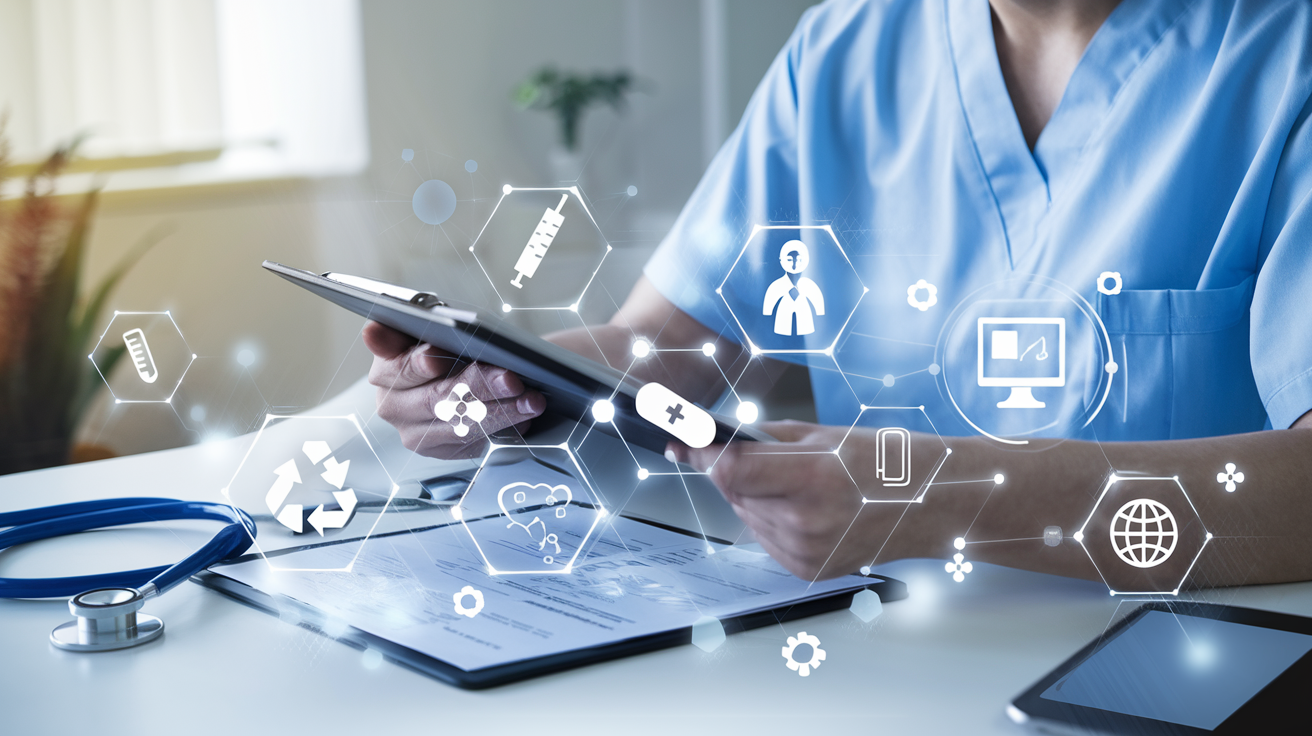
Generative AI (GenAI) is no longer just a buzzword in tech circles, it’s becoming a transformative force in the healthcare industry. From enhancing diagnostics and automating documentation to personalizing treatments and predicting health risks, GenAI is reshaping the way care is delivered.
With healthcare systems under pressure to do more with less, GenAI offers a way to boost efficiency, precision, and patient satisfaction. In this article, we explore the critical features, practical applications, and measurable benefits of GenAI in modern healthcare environments
-
Informed Diagnoses: By analyzing structured data (like lab values) and unstructured data (such as physician notes), GenAI suggests differential diagnoses based on the latest clinical evidence serving as a digital second opinion.
-
Treatment Optimization: GenAI platforms can synthesize patient history, clinical trials, and best practices to recommend personalized treatment paths. This reduces variability in care and improves treatment effectiveness.
-
Disease Outbreak Detection: By mining unconventional data sources like social media trends, mobility patterns, and EHR data, GenAI can forecast potential outbreaks before they overwhelm public health systems. This gives authorities a vital head start in resource allocation and containment. (Science Direct)
-
Chronic Condition Forecasting: For patients with conditions like diabetes or heart disease, GenAI enables predictive modeling that flags individuals at risk empowering healthcare systems to take preventative measures, such as lifestyle interventions or medication adjustments.
-
Genomic-Based Therapies: By analyzing an individual's genetic makeup, GenAI can suggest targeted therapies that are more likely to succeed based on how similar patients responded.
-
Dynamic Treatment Adjustment: Treatment doesn’t end with the prescription. GenAI systems monitor patient responses in real time, recommending dosage changes or alternative therapies based on effectiveness and side effect profiles.
-
Rapid Compound Screening: AI algorithms can simulate thousands of drug interactions in silico, reducing the time and cost required to identify viable compounds. (JAMA Network)
-
Efficacy Prediction: By modeling how candidate drugs interact with biological systems, GenAI helps prioritize compounds with the highest therapeutic potential streamlining the path from lab to clinical trial.
-
Minimizing Human Error: Even seasoned clinicians can miss critical data. GenAI acts as a safety net, catching anomalies that might otherwise be overlooked.
-
Early Detection: Conditions like cancer and neurological diseases often benefit from early diagnosis. GenAI improves detection timelines, increasing the chances of successful outcomes.
-
Individualized Care Plans: GenAI tailors care recommendations based on genetic, lifestyle, and medical history data, ensuring that no two patients receive the same “cookie-cutter” approach.
-
Enhanced Treatment Outcomes: Personalized treatments not only improve efficacy but also boost adherence, since patients experience fewer side effects and better results.
-
Automated Documentation: From patient charts to insurance coding, GenAI reduces clerical workload, enabling hospitals to reallocate human resources to higher-value care.
-
Faster Turnaround: GenAI speeds up diagnostics, treatment planning, and report generation, leading to reduced wait times and greater patient throughput.
-
Wearables and IoT Devices: GenAI interprets real-time data from devices like smartwatches and glucose monitors to offer continuous, adaptive care.
-
Telehealth Enhancement: Virtual health assistants powered by GenAI can triage symptoms, handle routine inquiries, and automate scheduling making telehealth more scalable and effective.
-
Smarter Patient Engagement: Providers that leverage GenAI to personalize interactions improve both patient satisfaction and loyalty.
-
Accelerated Innovation: Early adopters of GenAI are leading the pack in The AI Healthcare Revolution – Pioneering the Future of Medicine.

Posted by PDI Marketing Team
Pacific Data Integrators Offers Unique Data Solutions Leveraging AI/ML, Large Language Models (Open AI: GPT-4, Meta: Llama2, Databricks: Dolly), Cloud, Data Management and Analytics Technologies, Helping Leading Organizations Solve Their Critical Business Challenges, Drive Data Driven Insights, Improve Decision-Making, and Achieve Business Objectives.




